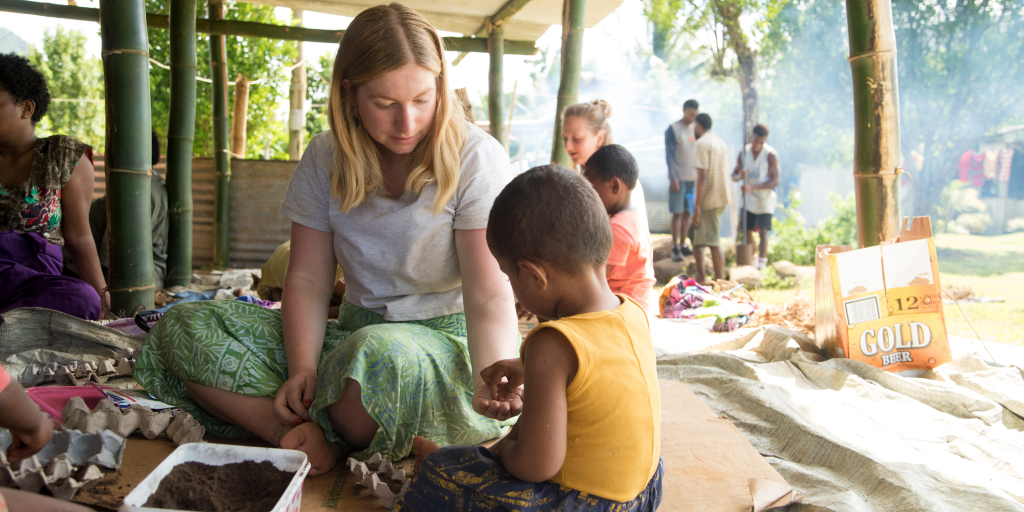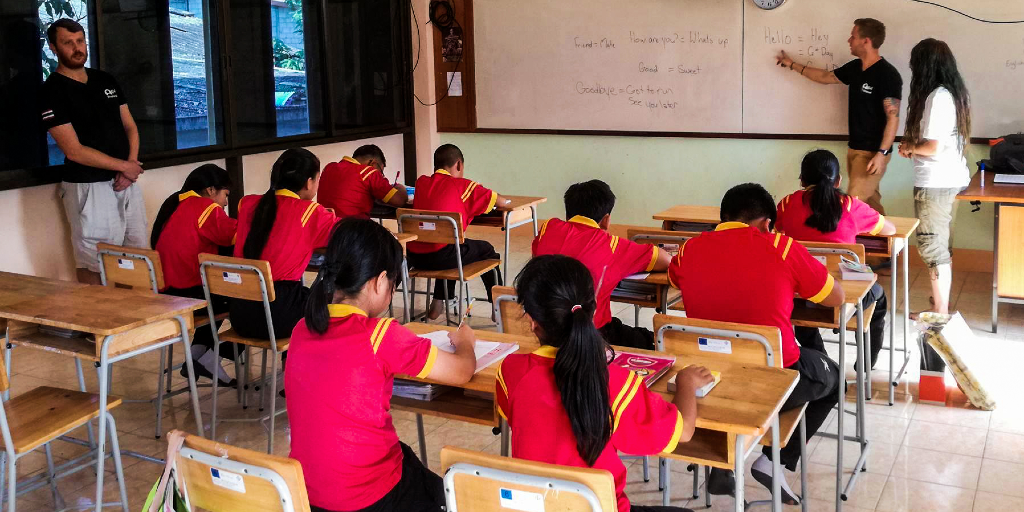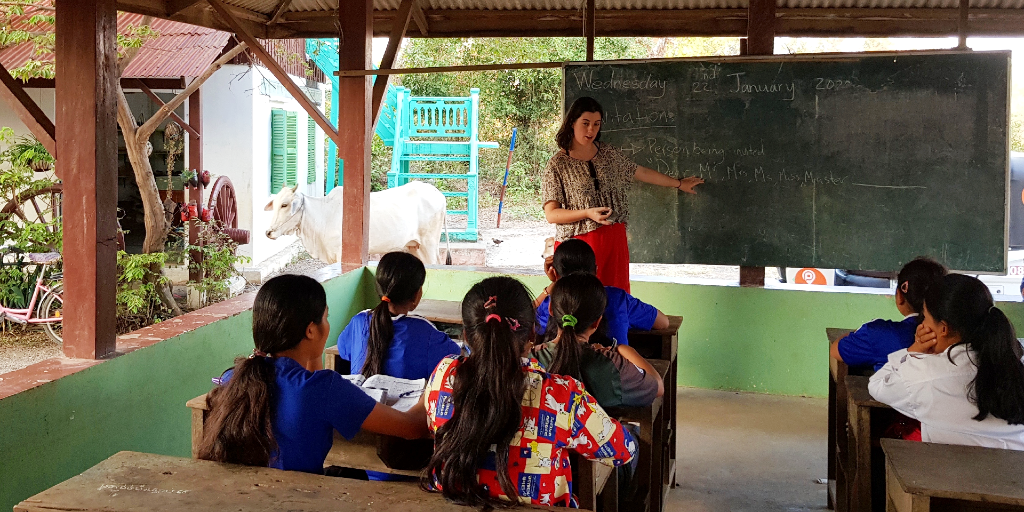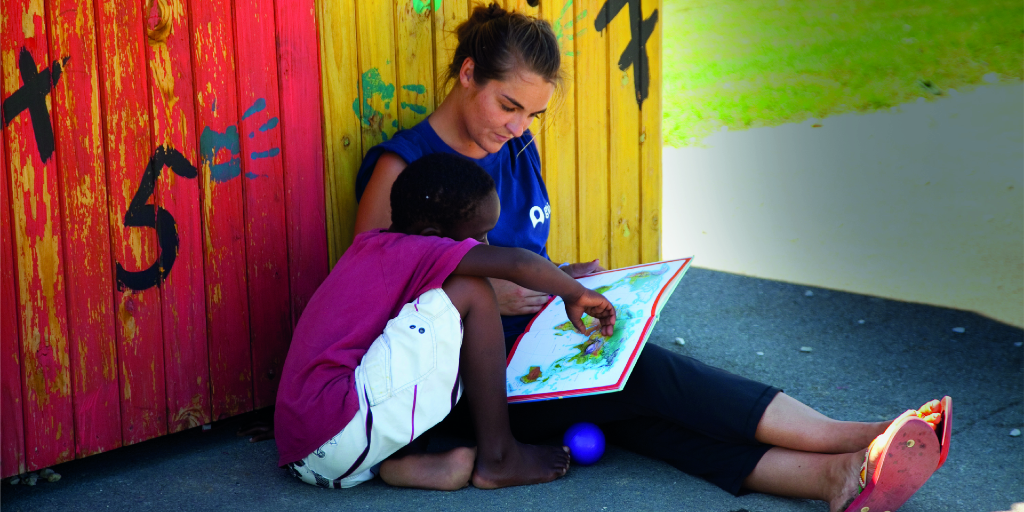Excited to take a gap year after high school and break from studying? Not only does this mean you get to change up your routines but you can also find adventure and purpose.
GVI
Posted: April 20, 2023

Posted: July 12, 2021
The images in this article were taken pre-COVID-19.
Service-learning is a type of learning that allows you to step out of the classroom and pair your school curriculum with community service. This type of practical learning is also a key concept in the educational psychology of Vygotsky, Piaget, and Dewey. Let’s find out more.
Since the times of Aristotle and Plato, there have been ongoing debates about how we learn best, what elements are the most important when it comes to intellectual growth and how to best implement this within an educational system.
In a report, the National Commission on Service-Learning defined this type of education as: “a teaching and learning approach that integrates community service with academic study to enrich learning, teach civic responsibility, and strengthen communities”.
Service-learning comes up with alternative ways of learning, compared to our traditional educational system, and meets some of educational psychology’s key findings.

Let’s take a look at some of the leading educational psychology theories to better understand how service-learning fits into these frameworks.
Jean Piaget was a psychologist, known for his theory of cognitive development that made important contributions towards the field of child psychology as we know it today.
His main theories rethought a common perception at the time, that children are less competent thinkers than adults, and reframed our understanding of how children process information.
Piaget’s theory is that children learn things by interacting with their environment and picking up new information. They understand the world around them by filtering this information into what he calls “schemas” or categories.
Read more about Piaget’s work in this article: Jean Piaget’s theory and stages of cognitive development.
So, how does this relate to service-learning? Well, this theory shows that physical interaction with the world is an important stepping-stone to learning about and understanding it.
In the same way, service-learning is a practical form of learning that assists us in better understanding the theoretical things learnt in the classroom.

Lev Vygostsky was also a psychologist, best known for his theory of sociocultural development. This theory says that children’s understanding of the world is shaped by their culture, community and social interactions.
Read more about Vygotsky’s work in this article: Lev Vygotsky’s sociocultural theory.
The basis of his theory is that children learn best by interacting with other people. And that’s exactly what service-learning is all about. You get to work with a group of people in a program centred around a type of community service.
When you join a service-learning program, you also get to choose the field you’re most interested in and perhaps even plan to pursue as a career one day.
And, you get to pair the theory work with real-world experience to put your knowledge into context. Some service-learning programs for you to join include: marine conservation, wildlife conservation and community development.
John Dewey was a philosopher, psychologist, scholar and teacher. He joined the forefront of educational psychology a bit later in the game, but also encouraged an alternative type of education.

He strongly believed that sitting in a classroom wasn’t all it took to learn, and was passionate about the fact that we learn best through the act of doing.
Further reading: The one TED talk that everyone in education needs to watch right now
Just like the two theories we looked at, this one also supports the idea of putting education into action outside of the classroom.
So, let’s look at how these theories tie together with service-learning.
What do these theories teach us about the psychology behind education?
They teach us that when it comes to best practices surrounding education, there’s more than one way that students can learn.
They also remind us that emerging trends, like service-learning, complement shifting approaches to education by encouraging real-world learning.

Are you ready to try a service-learning program?
Further reading: All about service-learning for high school students
GVI is a multi-award winning organisation. Find out more about our international service-learning programs and see how students from around the world are making an impact.
Excited to take a gap year after high school and break from studying? Not only does this mean you get to change up your routines but you can also find adventure and purpose.
GVI
Posted: April 20, 2023